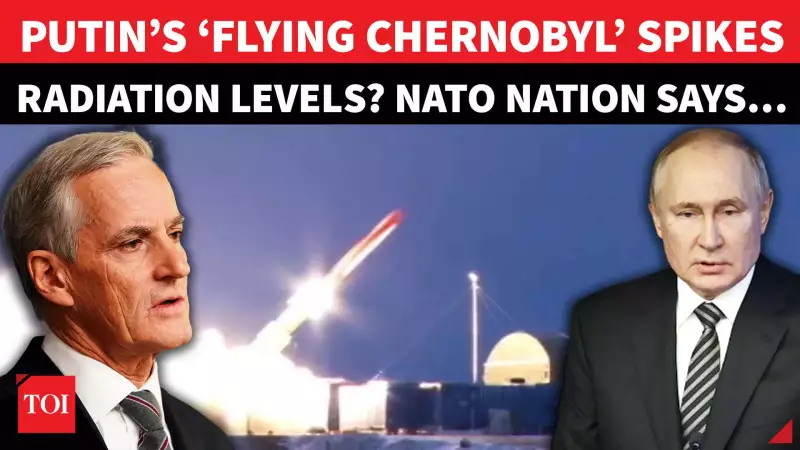
In a startling revelation that has sent shockwaves through international security circles, a NATO member nation has reportedly identified the clandestine launch site of Vladimir Putin's much-feared Burevestnik nuclear-powered cruise missile.
The controversial weapon, which Western officials have ominously nicknamed 'Flying Chernobyl' due to its potentially catastrophic safety risks, represents one of Russia's most advanced and dangerous military projects.
The Secret Location Unveiled
While specific coordinates remain classified in public reports, intelligence sources confirm that the hidden testing and launch facility has been precisely located by NATO analysts. This breakthrough comes after years of speculation about where Russia was developing and testing the revolutionary missile system.
The Burevestnik, known in Russian military circles as 9M730, represents a technological leap in weapons development with its nuclear propulsion system designed to give it virtually unlimited range.
Why 'Flying Chernobyl'?
The chilling nickname stems from grave concerns among Western military experts about the missile's safety profile. A nuclear-powered cruise missile flying through international airspace presents unprecedented environmental and security risks.
Key concerns include:
- Potential radiation leakage during test flights
- Catastrophic failure scenarios over populated areas
- Environmental contamination in case of crashes
- Unprecedented arms race implications
Global Security Implications
This exposure of Russia's secret launch facility marks a significant intelligence victory for NATO forces. The identification allows Western nations to better monitor Russia's progress with the weapons system and develop appropriate countermeasures.
The revelation comes at a time of heightened tensions between Russia and NATO countries, with the ongoing conflict in Ukraine already straining international relations to their limits.
Military analysts suggest that making this information public serves as both a warning to Russia about NATO's intelligence capabilities and an alert to the international community about advancing nuclear weapons technology.






